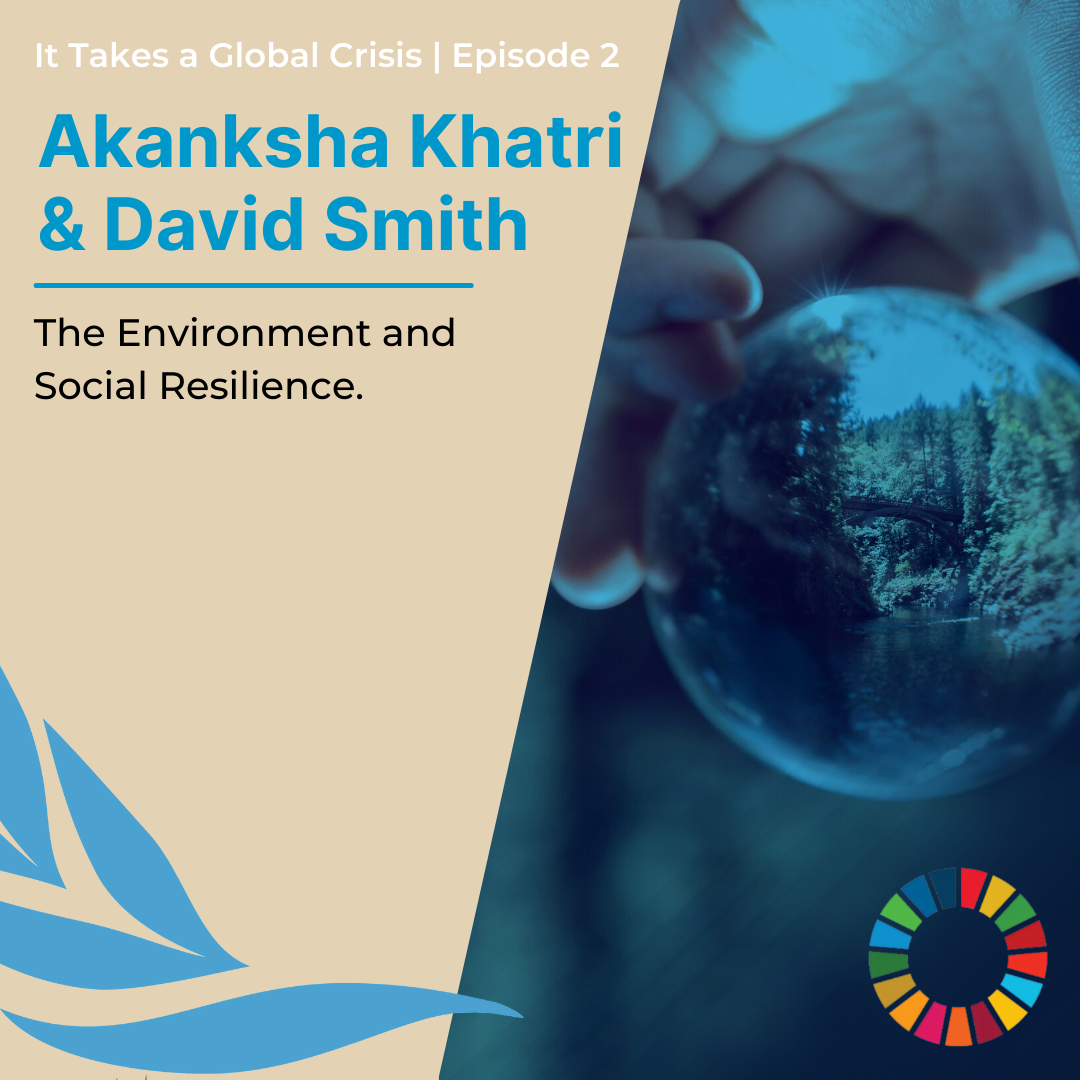
The SDG Lab and UN Geneva Library & Archives collaborate to bring you a podcast mini-series exploring COVID-19’s effects on the Sustainable Development Goals (SDGs).
Following the first episode of 'It Takes a Global Crisis', on digitalization and connectivity, in episode 2, we discuss the link between the wellbeing of the environment and a healthy society.
With guests David Smith, Chief Economist and Regional Coordinator of UNDP-UNEP Poverty-Environmental Action for the SDGs (PEA), UNEP Africa Office, and Akanksha Khatri, Head of the Nature Action Agenda with the World Economic Forum, we look at the link between economic growth and environmental sustainability and what needs to change to meet the Sustainable Development Goals. So, did it take a global crisis to realize society’s wellbeing is related to the health of our planet?
Indeed, according to Akanksha Khatri, it took a global pandemic for society to recognize a concept called nature sparing and nature sharing. Meaning if humanity continues to expand and degrade natural habitats, we do so at our own risk. COVID-19 slashed global economic output by trillions of dollars. Because our economic resilience is tied to the planet's health, COVID shifted our thinking on natural capital—for instance, forests and resilient oceans—and highlighted that there could be no resilient economy without resilient natural capital.
The World Economic Forum’s Global Risk Report has concluded for the past five years that risk (and perception of risk) on climate action failure and biodiversity loss has increased among hundreds of business leaders. Human activity, according to Khatri, is pushing us into an Anthropocene world, where human impact on the planet is greater than the planet’s biophysical limits. “It is time for us to take responsibility for our actions and recognize that we live on a planet which does not have infinite resources, as we have always assumed it to be,” Khatri said. David Smith agrees. The pandemic has laid bare humanity's fragility in a way that short-term, geographic-specific crises like extreme weather events haven't.
Sustainable management is critical to achieving a balance between managing natural capital and ensuring the wellbeing of the people who depend on nature for their livelihood, according to Smith. In most cases, with overfishing, soil erosion, and cutting down forests, sustainable management has not been achieved, and the social and economic benefits from these natural resources decline. If implemented correctly, sustainable management ensures a sustainable flow of resources’ socioeconomic benefits. Sustainable management, according to Smith, must incorporate gender elements; in Africa, where most smallholder farmers are women, for sustainable management practices to be effective they must empower women.
Both Khatri and Smith raise the issue of financing mechanisms. The UN Convention on Biological Diversity has set a target by 2030 to conserve at least 30% of the planet's lands and oceans. The private sector, according to Khatri, has a pivotal role to play. First, businesses must identify their impact across the value chain on nature and its services; second, natural capital policies must be equally prioritized as financial and human capital. Development aid, according to Smith, while increasingly tenuous given the fiscally constrained environment, must be reprioritized towards sustainability and regenerative practices. A blended capital model may be one pathway: governments can underride the risk capital for the private sector, and the private sector can incorporate innovative financing mechanisms and lobby for policy coherence.
Individuals, particularly women who have traditionally been excluded from participating in development planning and environmental processes, must be empowered to speak up and bring about functional changes to reduce poverty and improve environmental sustainability in their communities. For instance, the WEF launched a trillion trees, an initiative to incorporate a more bottom-up approach under the SDGs. Ecological entrepreneurs worldwide can submit ideas on restoration in rural and urban settings and engage with the WEF network and each other.
Another example of a nature-based solution is the hundred million farmers platform, a global initiative supported by WEF that incentivizes farmers and encourages consumers to consider the environment as a core element of the food economy. This multistakeholder project aims to empower and support one-fifth of farmers worldwide to help food systems and farmers sustain a growing population while supporting the fight against the climate emergency.
On the question of what the COVID-19 crisis revealed, Khatri underscored the intricate linkage between human health and planetary health, while Smith believes the pandemic highlighted “the importance of empathetic and decisive leadership.”




